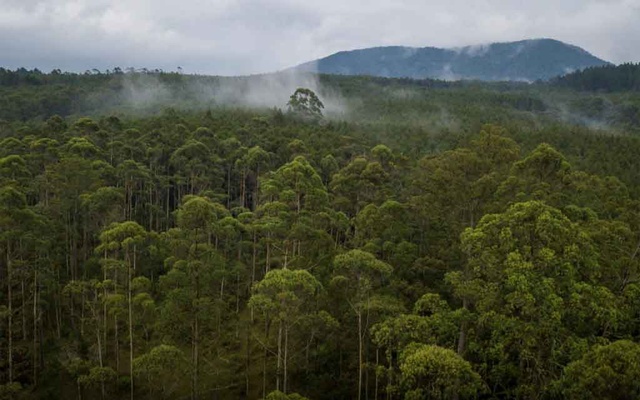Global reforestation drive grows fast as governments grasp benefits

Dhaka, 5 September, 2020: The world's largest reforestation push, now almost a decade old, has beaten its 2020 target, as countries use their pledges to tackle national priorities including job creation, food security and climate change, researchers said on Wednesday.
The Bonn Challenge – launched in 2011 by the International Union for Conservation of Nature (IUCN) and Germany – aims for 150 million hectares (371 million acres) of degraded forest land to be under restoration by 2020 and 350 million hectares by 2030.
Already, 61 nations, eight states in Brazil, Mexico and Pakistan, and five environmental groups have made non-binding commitments to restore more than 210 million hectares, about six times the size of Germany, according to an IUCN progress report.
Stewart Maginnis, global director of IUCN's Nature-based Solutions Group, said the challenge had proved successful because it was about "problem-solving", not just tree-planting.
"Part of the secret sauce is that it has got a relevance to other parts of the economy and other sectors at national level," Swiss-based Maginnis told the Thomson Reuters Foundation.
For every $1 spent on forest restoration, at least $9 of economic benefits are generated, said the report, estimating that nearly $76 trillion could be gained each year from addressing land degradation.
In 2019, tropical rainforests – whose preservation is considered crucial to curbing climate change – disappeared at a rate of one football pitch every six seconds, according to data from monitoring service Global Forest Watch.
Environmentalists say conserving existing forests and restoring damaged ones reduces the risk of flooding, stores more planet-warming carbon and protects biodiversity.
Worldwide, there are about 5.5 billion hectares of forest.
Countries that have pushed forward with their Bonn pledges recognise that natural solutions like forest restoration are key to meeting national policy goals such as cutting carbon emissions, and boosting land productivity and food security, said Maginnis.
Earlier this year, the World Economic Forum – which dedicated its 2020 gathering in Davos, Switzerland, to climate change and sustainability – launched a platform to drive the planting of one trillion trees worldwide.
It is backed by a host of public figures, including U.S. President Donald Trump, a long-time climate change sceptic.
'DECENT' JOBS
In Asia, India is aiming to increase its forest area and green cover to a third of its total land area by 2030, up from about a quarter, as part of its commitment to reduce carbon emissions and meet pledges made under the Paris climate accord.
China, Ethiopia, Malawi, Cameroon and Ivory Coast have also launched large-scale tree-planting efforts with some success.
Maginnis said the reforestation drive could also support post-coronavirus economic recovery plans.
Preliminary analysis shows that for every $1 million invested in re-planting forests, six times the amount of jobs could be created compared to stimulus measures in other sectors, such as the auto industry during the 2008 global financial crisis, he added.
"There is a real potential efficiency in being able to create decent jobs," Maginnis said.
Methods used to make the Bonn Challenge a success will likely be replicated to better manage wetlands, rivers, mangroves and coastal areas in the next decade, he added.
Former UN climate chief Christiana Figueres, who oversaw the adoption of the 2015 Paris climate agreement, said the Bonn Challenge provided the evidence needed to mobilise greater investment in reviving forests.
"We know that the climate change, biodiversity, health and economic crises have all converged," she said in a statement.
"The human, environmental and economic case for increasing global restoration action is key to restoring our future."
Read More
.

